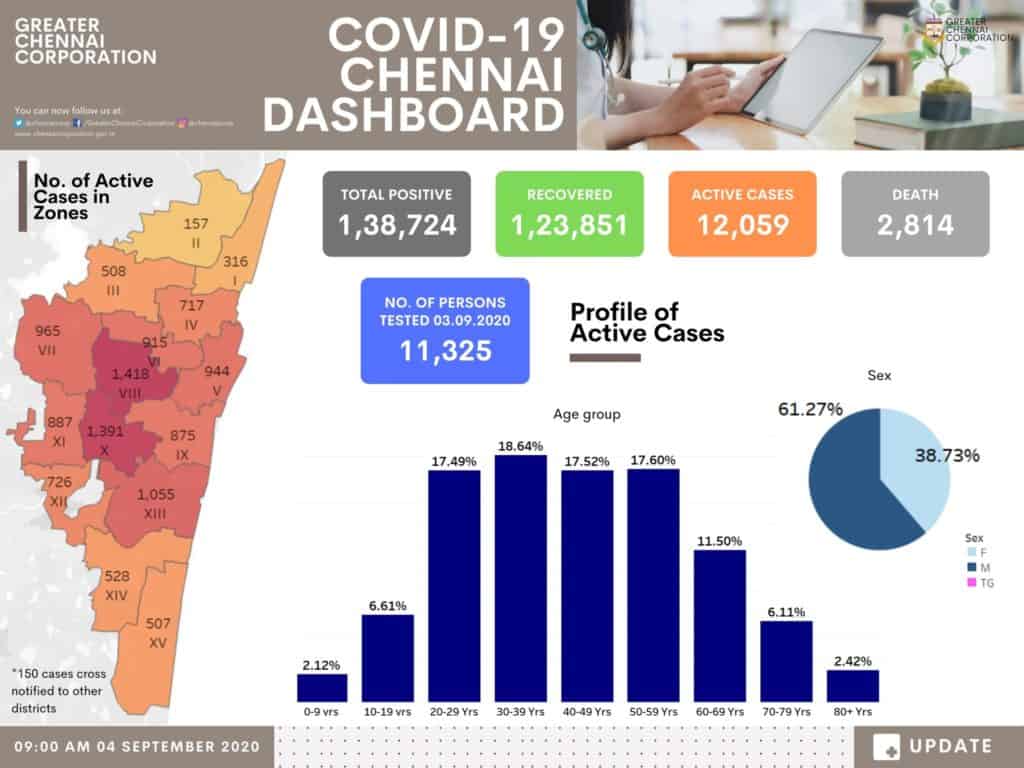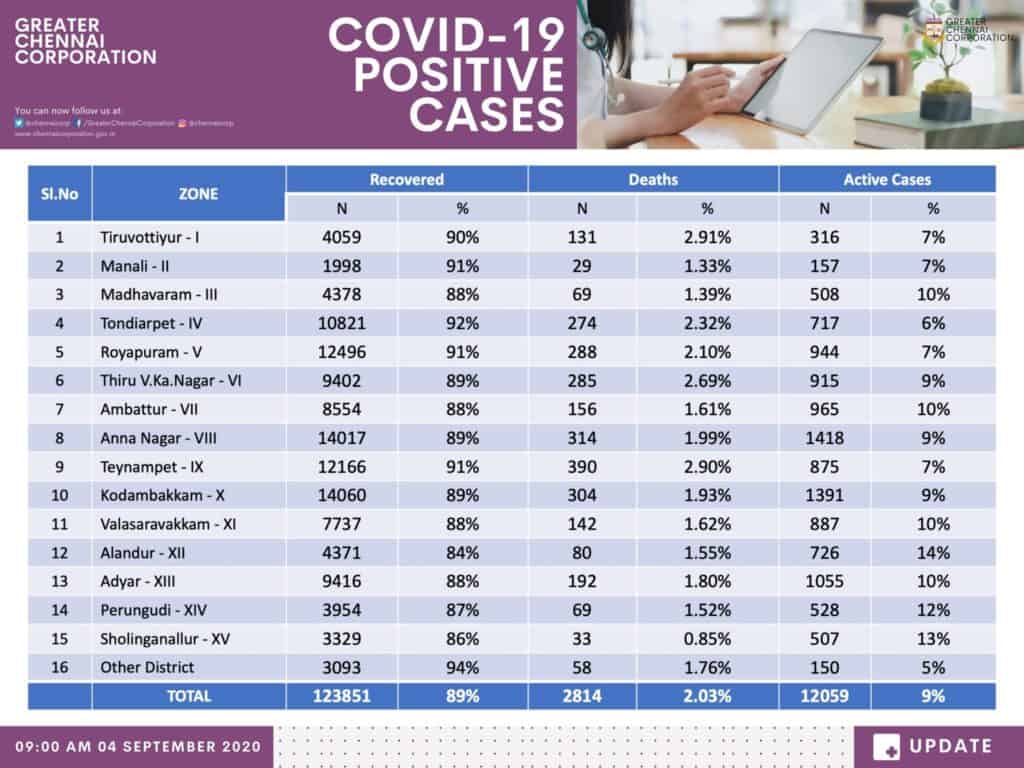On September 3rd, Chennai recorded 968 fresh COVID cases and 29 deaths. There are 12,059 active cases in the city.

In a bid to track patients who have been discharged after treatment for COVID-19 from the Government Kilpauk Medical College (KMC), the institution is launching a dedicated post-COVID-19 care clinic. The hospital has seen 7,022 COVID patients so far and 6,232 patients have been discharged. A dedicated ward is being set-up for this purpose. Patients who were treated for more than 28 days will receive follow-up treatment at this facility.

The preliminary findings of the sero survey released by the Greater Chennai Corporation revealed that one-fifth of the city’s population has been exposed to the COVID-19 virus. About 12,405 residents in 51 wards were tested for the presence of the antibodies against SARS-CoV-2. Of them, 2,673 had been exposed to the virus with a seroprevalence of 21.5%. The sero survey report revealed that around 80% of the city’s population is still susceptible to SARS-CoV-2 virus.
Source: The Hindu | The New Indian Express
Micropollutants in Red Hills reservoir
Researchers of the Institute for Ocean Management, Anna University, have found microplastics measuring less than 5 mm in the Red Hills reservoir. The reservoir had an average concentration of 5.9n/m3 microplastics in the water.
The water in the reservoir mainly flows in from the lakes contaminated with garbage and sewage in the neighbourhood. The microplastics found are the variety that is used in packaging meat, sweets and snacks, for plastic cutleries, toys, bottles and parts used in the automobile industry.
Water from Red Hills reservoir is sent to Kilpauk Water Works for filtration. The Chennai Metrowater Supply and Sewerage Board (CMWSSB) uses sand filters for the removal of chlorine and micropollutants. However, there is no tool to remove the microplastics from the water.
Source: The Times of India
Funds sought for integrated SWD in North Chennai
Asian Development Bank (ADB) is providing funds to the Greater Chennai Corporation (GCC) for the construction of an integrated stormwater drain (SWD) network in the Kosasthalaiyar Basin falling in North Chennai. The estimated cost of the project is USD 358.5 million and the state government has borrowed USD 251 million from the ADB. It is to be noted that the announcement of the project was made during an Assembly session in 2014.
The integrated SWD will protect the urban poor and vulnerable population from flood risks. Through the project, the flood protection in the urban areas will be improved by enhancing drainages along the roads, channels and through the rejuvenation of water bodies.
Source: The New Indian Express
Metro rail services from September 7th
The Chennai Metro Rail Limited (CMRL) will begin partial services from September 7th between Washermanpet and Chennai Airport. The route between Chennai Central and St Thomas Mount will restart from September 9th. Tickets can be booked through smartcards or QR code as the token system will not be available. Passengers will be checked for temperature at the entry point. Masks are mandatory throughout the journey.
CMRL is also planning to introduce the national common mobility card (NCMC) in six months. The card can also be used in the city’s buses and suburban train services. According to a CMRL authority, the card will be distinct from the existing smart card.
Source: The Hindu | The Times of India
[Compiled by Bhavani Prabhakar]